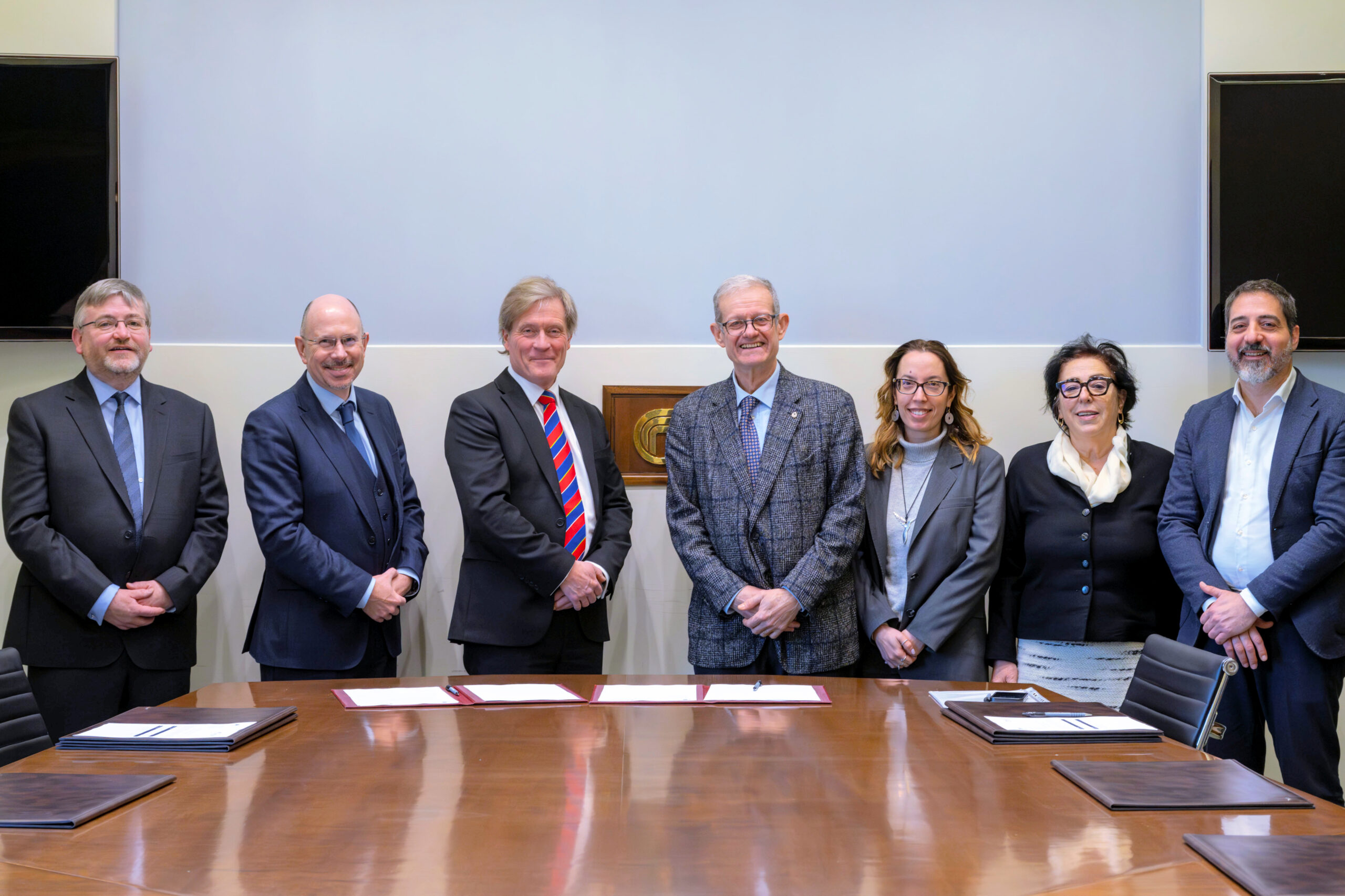ISIS and Italy celebrate 40 years of partnership
20 Feb 2024
On 15 February 2024, a celebration was held to mark four decades of steadfast collaboration and friendship between Italy and the ISIS Neutron and Muon Source. Inigo Lambertini, Italy’s Ambassador to the UK, and the President of the Italian research council (CNR), Maria Chiara Carrozza, attended an event at the Rutherford Appleton Laboratory to mark 40 years of partnership between Italy and STFC’s ISIS Neutron and Muon Source.

The first collaboration agreement between ISIS and Italy was signed in 1984. Since then, the partnership has seen some 4000 Italian researchers use ISIS for a wide range of materials studies, leading to over 900 research publications. In addition, twelve neutron or muon instruments have been constructed at the facility through ISIS-Italy collaboration.
It is a fantastic achievement that we are celebrating today – one that the CNR and ISIS can be rightly proud of.
Prof Maria Chiara Carrozza, CNR President
The event highlighted significant scientific achievements resulting from the partnership, notably the advancement of cultural heritage studies using neutron and muon beams. The strong links between the people involved in the collaboration were emphasised throughout the talks.
”This long-standing partnership between ISIS and Italy is impressive in its breadth and depth,” Prof Maria Chiara Carrozza, CNR President, noted. “It is a fantastic achievement that we are celebrating today – one that the CNR and ISIS can be rightly proud of.”
Mark Thomson, STFC’s Executive Chair, commented, “The partnership with Italy has helped to shape the ISIS Neutron and Muon Source over several decades. Working with out Italian colleagues has brought new expertise, new instruments and exciting science. We are looking forward to many more years of collaborative working.”
The celebration event included welcome addresses from Prof Carrozza and Prof Thomson, an overview of the ISIS Neutron and Muon Source from ISIS Director Roger Eccleston, and a summary of the partnership from Carla Andreani (University of Rome Tor Vergata) and Andrew Taylor, former ISIS Director. Further talks from Italian and ISIS researchers highlighted the instrument and scientific achievements of the collaboration.

Left to right: Steven Wakefield (ISIS Interim Director), Philip King (ISIS Associate Director, Partnerships and Programmes), Roger Eccleston (STFC Executive Director National Labs Large Scale Facilities), Giuseppe Colpani (Director General, CNR), Lorenza Evangelista (Research Support and Grant Office, CNR), Carla Andreani (University of Rome Tor Vergata) and Giuseppe Magnifico (Director a.i., Research Infrastructures Office and Director of the Research Support and Grant Office, CNR).
The ISIS Neutron and Muon Source is a world-leading centre for research in the physical and life sciences at the STFC Rutherford Appleton Laboratory near Oxford in the UK. Its suite of 35 neutron and muon instruments gives unique insights into the properties of materials on the atomic scale. The facility supports a national and international community of more than 3000 scientists for research into subjects ranging from clean energy and the environment, pharmaceuticals and health care, through to nanotechnology and materials engineering, catalysis and polymers, and on to fundamental studies of materials.
The Italian National Research Council (CNR) is the largest public research institution in Italy, the only one under the Research Ministry performing multidisciplinary activities. Founded as legal person on 18 November 1923, CNR’s mission is to perform research in its own Institutes, to promote innovation and competitiveness of the national industrial system, to promote the internationalisation of the national research system, to provide technologies and solutions to emerging public and private needs, to advice Government and other public bodies, and to contribute to the qualification of human resources.
The partnership between ISIS and CNR has been ongoing for 40 years. It has seen extensive use of ISIS instruments by Italian researchers, Italian investment in the ISIS instrument suite, and scientific studies from cultural heritage to fundamental magnetic systems, hydrogen storage materials, water structure and single event effects in microchips.

